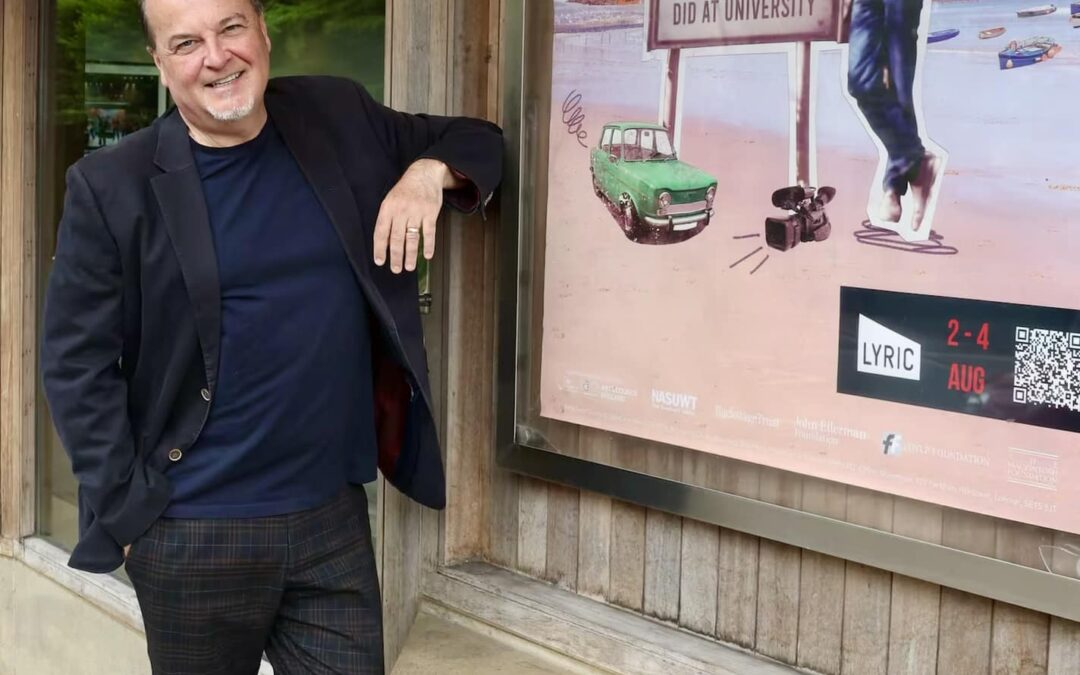Last week I had the most surreal experience of my life. A musical, based on the memoir of my student days in the 1980s, has been playing at the Lyric Theatre. It is the third of my memoirs to be transformed into a musical, but this time the show includes me meeting my wife Lesley for the first time, asking her out and proposing to her! It is quite overwhelming. Looking on at our lives played out on the stage with such talent, feels like being a very privileged sort of bystander.
Normally, being a bystander is not such a positive experience. Years ago, I was standing in a queue at a bus stop when a drunk man started to harass a young woman. My initial instinct was not to get involved, and I could see everyone else in the queue was thinking the same. The urge to remain a bystander was strong. Maybe one of us might phone the police. But that would be too late for the young woman.
In the end, I decided do something. I pretended to know the drunk man, stood in front of the woman and struck up a conversation, which distracted him until the bus arrived. I broke the by-standing habit of a lifetime, but I still struggle with it to this day.
Social psychologists call it …”the bystander effect”, when we are less likely to offer help to a victim when other people are present. They say the greater the number of bystanders, the less likely we are to do anything.
In recent weeks, I have been inspired by people who have chosen not to be bystanders.
Good people in a housing estate in Antrim, scrubbing off the racist graffiti from their neighbour’s home.
Last week, Christians in Southport coming out to help their Muslim neighbours clean up their mosque following racist attacks.
This weekend, church and community leaders and thousands of us across Northern Ireland making clear statements of support for our Muslim neighbours and newcomer friends, in the face of threats and attacks from a small minority.
The ‘hate spreaders’ didn’t listen, but many others did, and are seeking to protect and support those who are most vulnerable.
We are living in a time when misinformation and hatred is deliberately spread digitally and co-ordinated to create fear, violence and suffering in our community.
Here and now is not the time to be a bystander.
This is not a time to pass by on the other side.
It is a time to remember what Albert Einstein said,
“The world will not be destroyed by those who do evil, but by those who watch them without doing anything.”
(This PS is the script of Thought for the Day broadcast by Dr Tony Macaulay, on BBC Radio Ulster, 5th August 2024…and available to replay on BBC Sounds)
Tony Macaulay is an author, peacebuilder and broadcaster. He has spent the past 35 years working to build peace and reconciliation at home and abroad. His memoirs of growing up in Belfast, Paperboy, Breadboy and All Growed Up have been adapted into musicals. His autobiography Little House on the Peace Line tells the story of how he lived and worked on the peace line in the 1980s. His debut novel Belfast Gate was Book of the Week in the Irish News and his latest novel, Kill the Devil, co-authored with Juvens Nsabimana is a love story between a perpetrator and survivor of genocide in Rwanda. Tony has been a regular broadcaster on BBC Radio and is a regular speaker at universities and colleges in Europe and the USA. He was awarded an Honorary Doctorate by Ulster University for services to literature and peacebuilding at home and abroad.
Please note that the statements and views expressed in this article of those of the author and do not necessarily represent those of Contemporary Christianity.


Recent Comments